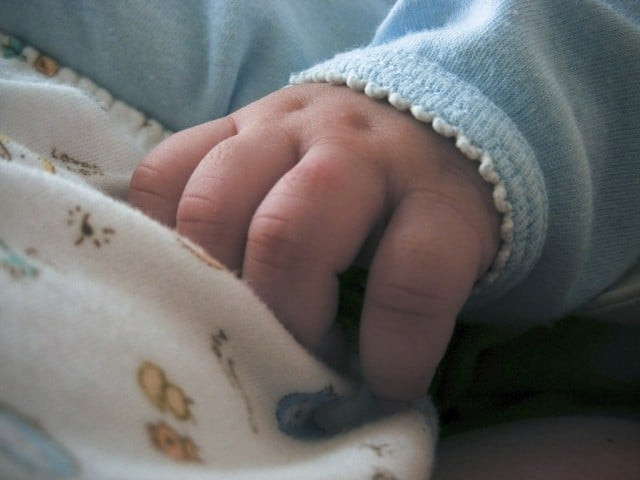Shariat court’s decision: Is the battle only half won for solutions to infertility?
While test-tube babies were allowed by the Islamic court, questions remain on surrogacy

While test-tube babies were allowed by the Islamic court, questions remain on surrogacy. PHOTO: EXPRESS
But the question lingers on the subject of surrogacy.
The Federal Shariat Court (FSC) had on Tuesday declared the use of 'test-tube babies' or In Vitro Fertilisation (IVF) technique for conceiving babies for married couples who have some medical complications. The decision came almost 29 years after the first baby was born in Pakistan through this method.
In IVF, an egg of a woman egg is fertilised by sperm in a test tube or elsewhere outside the body. After IVF, one or more fertilised eggs are placed inside the womb for conception.
While no comprehensive data is available in the country, experts estimate that around 1,000 test-tube babies are born in Pakistan every year in around 20 private hospitals and clinics. Around 2,000 couples are treated annually in Pakistan while treatment of through IVF or other methods costs between Rs30,000 to Rs40,000.
Since no official decision or decree existed on the matter before in Pakistan, centres offering such treatment in the country relied on decrees issued by scholars in other Islamic countries such as those by the Al-Azhar University of Egypt.
“Couples used to be sceptical about the technique (IVF) and its Islamic implications, since there was no clear cut policy of the state on it,” said Professor Dr Rashid Latif.
A gynaecologist, Prof Dr Latif had set up the first IVF centre in Pakistan in 1984. Four years later, he delivered the first test-tube baby of Pakistan and of South Asia.
In recognition of his services, the government awarded him a Sitara-e-Imtiaz in 1992.
“Pakistan was not far behind in this infertility treatment as first baby born in Pakistan through this technique came exactly 11 years after the birth of the first ever test-tube baby in the world,” he said.
However, the religious direction and regulatory mechanism on the matter was lacking.
Tuesday’s decision, though, would help people to opt for the treatment without any reluctance, Prof Dr Latif said.
However, the court declared as un-Islamic surrogacy – where a woman bears a child through artificial insemination on behalf of a couple who are unable to have a child - and the use of donor eggs and sperms – when sperms of eggs from either partner are not healthy, the corresponding sperm and egg from a third donor are used. This ruling could potentially restrict the use of advanced techniques and practices to treat infertility.
Curiously, the Shariat court had passed the order on a petition filed by Farooq Siddiqui, a genetic engineer who used a surrogate to give birth to a child in 2012, but the surrogate mother then refused to hand over custody of the child.
Dr Mohammad Aslam Khaki, who assisted the court in the case, was of the view that surrogacy could be allowed if the sperm and eggs are from the end custodians of the child. Dr Khaki, however, added that the court had given a just decision in the case and directed the government to make appropriate law in this regard to regulate the practice.
He, though, opined that the use of donor sperm was like adultery. “Whether in test-tube baby or surrogacy. Some clinics use healthy sperms with the consent of mother usually due to family pressures to have children, but the fathers do not know about it.”
Terming the use of donor sperms and eggs as un-Islamic, he said that any law on the matter should make DNA tests mandatory to ensure that sperms of the actual father are used. Moreover, only licensed clinics should be allowed to offer such services.
Published in The Express Tribune, February 25th, 2017.



















COMMENTS
Comments are moderated and generally will be posted if they are on-topic and not abusive.
For more information, please see our Comments FAQ